Multimodalism
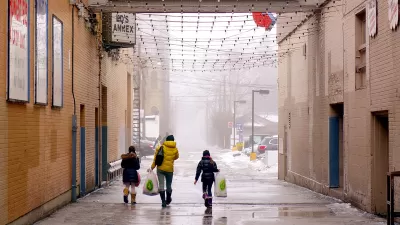
Biking and Walking Have Lost Momentum
A decade ago it seemed like biking and walking was making a comeback that could change the commuting culture of the United States.
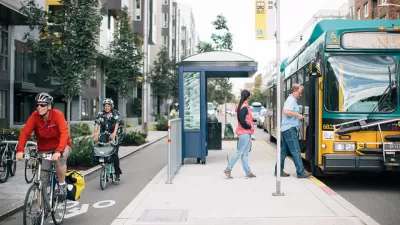
Downtown Seattle Corridor Gets Visioning Treatment
A stakeholder group hopes to create a pedestrian- and business-friendly streetscape in Downtown Seattle.

Americans See Public Transit as ‘Backbone’ of Multimodalism
A recent APTA study illuminates public opinion on mobility as a service, autonomous vehicles, and more.
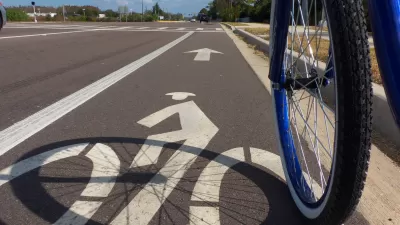
Debunking the Arguments Against Detroit's New Bike Lanes
Protected bike lanes, this writer argues, are just one part of a broader rebuild of Detroit that prioritizes engagement.
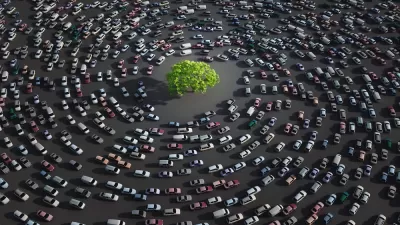
Op-Ed: Averting Climate Catastrophe Means Rethinking Our Transportation Habits
Given a recent dire report on climate change from the IPCC, Laura Bliss underscores the point that those who have the ability to do so should make changes to how they get around, and pronto.
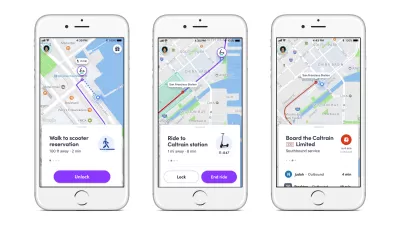
Lyft Moves Toward 'Full Mobility Package'
In cities around the country, Lyft is launching green, multimodal initiatives aimed at providing "all of the above" transportation options.
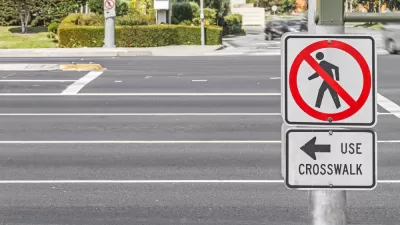
How Sidewalks Literally Sideline the Pedestrian
Plenty of sidewalks stand in need of improvement, and many aren't there at all. But they're also a symbol of the automobile's engineered dominance of our roads.
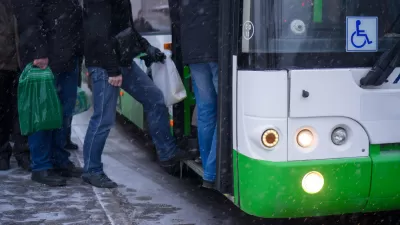
Transportation for Everyone
An efficient and fair transportation system must serve diverse users. The "Transportation for Everyone" rating system evaluates transport system diversity and, therefore, its ability to serve all community members.

Designing a Multi-Modal, User-Focused TOD Vision for Los Angeles' Expo Line
Facing explosive development interest around its Metro station, the small city of Culver on L.A.’s Westside is taking steps to shape its mobility future.

Australia's 'Biggest Bike Lane Skeptic'
The New South Wales minister for roads has taken a firm position against separate bike lanes. Sydney cycling advocates say his policies will bring the city out of step with its global peers.
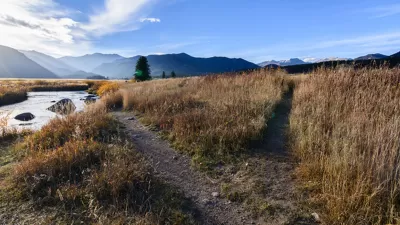
New Mapping Tools Shows How to Access Activities by Various Modes
The Urban Accessibility Explorer is an easy-to-use mapping system that measures the number of activities that can be reached by residents of specified neighborhoods within a given amount of travel time, by a particular mode and time of day.
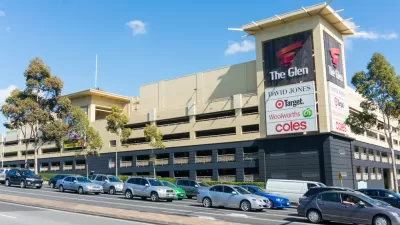
Self-Fulfilling Automobile Dependency
Common planning practices create automobile-dependent communities where driving is convenient and other forms of travel are inefficient. It's time to recognize the value of transportation diversity.

Why Bikeshare Doesn't Appeal to Low-Income Commuters
While bikeshare garners a lot of attention from the white and wealthy, it is a less obvious choice for low-income communities. Difficulties include weather, time constraints, and overall demand for non-auto modes.
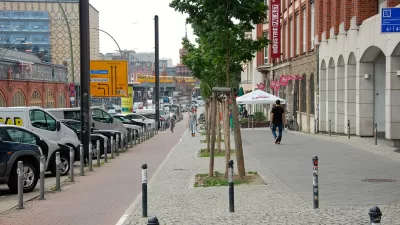
Report: Complete Streets Deliver More Than Just Good Vibes
Better safety and multimodal ease are not the only benefits offered by complete streets. According to this report, on the average they pay for themselves and then some.
Jersey City Joins NYC's Citi Bikes; Neighbors Create Separate System
Despite plans to create a uniform bike sharing program through the three New Jersey cities of Hoboken, Jersey City, and Weehawken, in the end Jersey City will join the Citi Bikes program while Hoboken and Weehawken partner with Next Bike.
The Value of Transportation Enhancements; Or, Are Walking and Cycling Really Transportation?
An important current policy debate concerns whether the next U.S. federal surface transportation reauthorization should require spending on “enhancements,” which finance projects such as walkways, bike paths, highway landscaping and historic preservation. This issue receives considerable attention, despite the fact that enhancements represent less than 2% of total federal surface transportation expenditures, because it raises questions about future transport priorities, particularly the role of walking and cycling. In other words, should non-motorized modes be considered real transportation.
Urban Design for Planners 1: Software Tools
This six-course series explores essential urban design concepts using open source software and equips planners with the tools they need to participate fully in the urban design process.
Planning for Universal Design
Learn the tools for implementing Universal Design in planning regulations.
Ascent Environmental
Borough of Carlisle
Institute for Housing and Urban Development Studies (IHS)
City of Grandview
Harvard GSD Executive Education
Toledo-Lucas County Plan Commissions
Salt Lake City
NYU Wagner Graduate School of Public Service


































